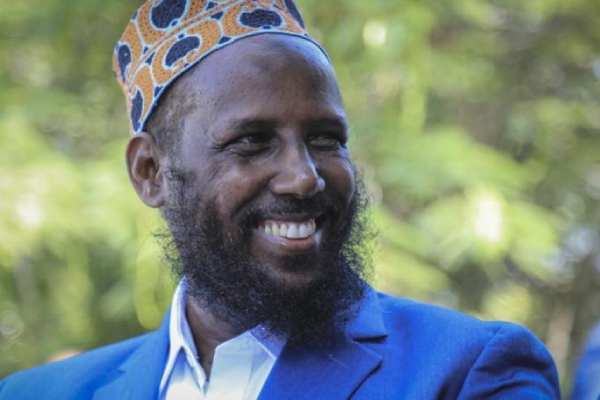Somalia’s Prime Minister Hamza Abdi Barre has announced the appointment of Muktar Robow, a former deputy leader and spokesman for the Al-Shabaab Islamist group as religion minister.
Muktar Robow, who has been under house arrest for the past four years owing to a conflict with former President Mohamed Abdullahi Mohamed, popularly known as Farmajo, is elated by the news.
Robow, 53, officially defected from Al-Qaeda-linked extremists in August 2017, with the US government announcing a $5 million reward for his capture at one time.
[wonderplugin_video iframe=”https://youtu.be/-pf5ITrmljk” lightbox=0 lightboxsize=1 lightboxwidth=960 lightboxheight=540 autoopen=0 autoopendelay=0 autoclose=0 lightboxtitle=”” lightboxgroup=”” lightboxshownavigation=0 showimage=”” lightboxoptions=”” videowidth=600 videoheight=400 keepaspectratio=1 autoplay=0 loop=0 videocss=”position:relative;display:block;background-color:#000;overflow:hidden;max-width:100%;margin:0 auto;” playbutton=”https://www.tvcnews.tv/wp-content/plugins/wonderplugin-video-embed/engine/playvideo-64-64-0.png”]
Mr. Robow was arrested late 2018 just days before he was scheduled to contest in municipal elections.
Farmajo’s administration accused him of “forming a militia” in Baidoa, the area’s capital in the southwest of the Bay, in an effort to “undermine stability.”
His detention sparked occasional demonstrations, with people torching photos of Farmajo, whom they accused of meddling in regional affairs.
His promotion comes only weeks after newly elected President Hassan Sheikh Mohamud signaled that his government was open to speak with Al-Shabaab, but only when the time was right.
For 15 years, Al-Shabaab conducted a brutal insurgency against Somalia‘s shaky central government, and it remains a formidable force despite an African Union campaign against it.
Despite being driven from Mogadishu, the capital of Somalia, in 2011, its forces still launch attacks on civilian, military, and governmental targets.
Barre said the delays were caused by the lengthy election process in the country, which culminated in May with the choice of Mohamud as president. Barre had been scheduled to pick a government within 30 days of his appointment on June 25.
In a 75-member team, the deputy prime minister, 25 ministers, 24 state ministers, and deputy ministers were all appointed on Tuesday. The nominations will be voted on by parliament.
The new government faces numerous obstacles, including an impending drought and a raging Islamist insurgency.
According to UN data, a catastrophic drought in the Horn of Africa has left around 7.1 million Somalis – nearly half the population – hungry, with more than 200,000 on the verge of starvation.
Mohamud stated in July that eliminating the violent insurgency requires more than a military response.





